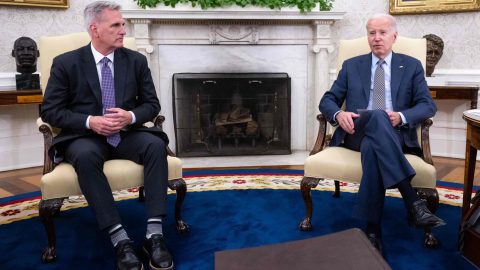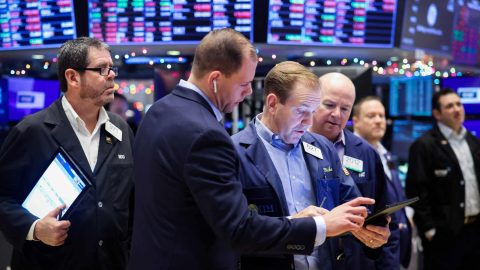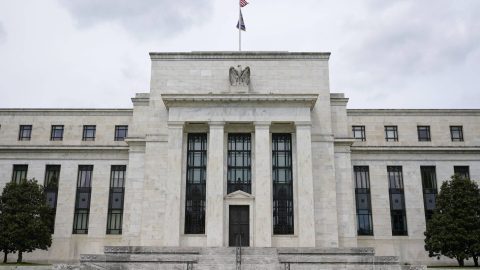All articles on the topic “Markets”
Inflation in Europe likely to have peaked
Inflation data in Europe recently showed a surprisingly significant slowdown. The decline in energy prices in particular had a dampening effect. Read our latest blog post to find out about the current inflation in the individual EU countries.
US labour market: strong employment growth
Surprisingly good figures came from the US labor market in the previous week. Despite the strong growth in employment, however, economic growth has recently been rather meager. Recession risks also remain at an uncomfortably high level.
Germany slides into technical recession: What does that mean?
The German economy slipped into a technical recession in the first quarter. What does this mean for the largest economy in the euro zone and what is a technical recession?
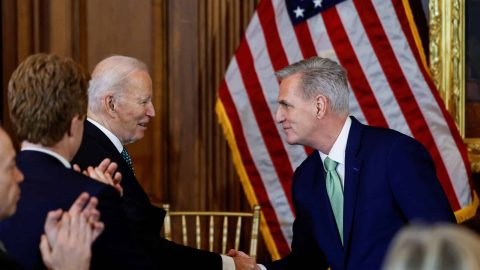
“Brinkmanship” – Agreement on Debt Ceiling
The representatives of the Democrats and the Republicans have reached an agreement in the dispute over the debt ceiling in the USA. The cap of $31,400 billion is to be suspended until 2025. Subject to approval in the House of Representatives and Congress, the agreement is positive for the financial markets. However, another effect could weigh on the markets further down the line.
Meager Growth
Global growth is likely to cool significantly in the second quarter. At the same time, recession risks remain uncomfortably high, as Chief Economist Gerhard Winzer writes in his market commentary. The further course of negotiations on the US debt ceiling is also likely to cause tension on the market.
IT-Giants focus on Artificial Intelligence
The cloud business of the leading tech companies continues to boom. However, many see the future primarily in the potential applications of artificial intelligence. With billions in investments, Google parent Alphabet and software giant Microsoft want to take a leading role in the trendy topic of AI.

Markets in a wait-and-see mode
How much longer will the sideways trend on the stock markets last? Negative and positive factors balance each other out. One unresolved issue among many is the U.S. debt ceiling.
“A mild economic downturn has already been priced in by the market”
With the ERSTE REAL ASSETS mixed fund, investors can invest in real assets – and have indeed been doing so for two years now. On the occasion of the fund’s two-year anniversary, Philip Schifferegger, fund manager of ERSTE REAL ASSETS, is taking a look at the current market situation. He also explains why the fund is well equipped for both positive and negative market phases.
“The demand for affordable housing remains high”
ERSTE IMMOBILIENFONDS is celebrating its 15th anniversary this month. The portfolio now comprises 85 properties in 10 cities with real estate assets of around EUR 2 billion. In this interview, Peter Karl, CEO of ERSTE Immobilien KAG, talks about the development of the fund and the challenges on the real estate markets in the face of rising interest rates and high inflation.
Central banks weigh risks
Most recently, central banks have signaled a somewhat less sharpish stance, as an effect of the rapid key rate hikes on the monetary environment has already become visible. However, recent economic data are dampening hopes for a rapid decline in inflation, as Chief Economist Gerhard Winzer explains in his market commentary.
Damage makes wise – Herd panic and the lessons learned
Last weekend, for the third time in two months, a US bank found itself in turmoil. After Signature Bank and Silicon Valley Bank (SVB) slid into crisis in March after customers withdrew billions in funds, First Republic Bank has now been hit. A look at the history books shows that banking crises and bank runs have happened time and again. However, the lessons learned from them helped to make the banking system more robust and stable.
Elections in Greece – an end to the never ending story?
The Greek sovereign debt crisis is now more than 10 years old. Many observers saw this event as the starting point of a never-ending story. However, if one looks at the recent past, Greece convinced with positive aspects. Many see the upcoming parliamentary elections on May 21 as the last major obstacle to regaining the country’s investment grade rating.
Eastern Europe Economies Outperforming the Eurozone
The Vienna Institute for International Economic Studies sees the economies of Eastern Europe on a growth path. The bottom seems to have been reached. Now investing in the region’s leading companies?
Where is the recession?
The global economy grew strongly in the first quarter of 2023. At the same time, inflation remains too high, which is why central banks will continue to pursue a restrictive monetary policy. Although growth indicators are good to strong, there are therefore increased risks of recession.
Türkiye: President Erdogan Focuses on Economic Issues in Election Campaign
The hot phase of Turkey’s election campaign has begun, with parliamentary and presidential elections to be held simultaneously in the country on 14 May. In addition to the consequences of the earthquake disaster in early February, the Turkish citizens are also suffering from the massive inflation.
Five pieces of advice for saving with a fund savings plan
Putting money aside is important. But it is equally important for said money to potentially earn a return. This is where the fund savings plan comes in.
Banking problems support share prices
Since the banking problems in the US emerged in March, share prices have risen and expectations for future key interest rates have fallen significantly. However, inflation dynamics remain the most important factor for the markets, but unfortunately also one that is difficult to assess.
Robust economy despite recent turbulences
Despite the recent turmoil in the banking sector, both companies and the global economy are currently proving to be extremely robust. Read more about the current market environment in the commentary by Gerald Stadlbauer, Head of Discretionary Portfolio Management at Erste AM.
OPEC+ announces surprise oil production cut
The OPEC+ oil cartel’s member countries surprised the markets with an unexpected production cut announcement early this week, causing a surge in crude oil prices. The cuts were a “precautionary measure aimed at supporting the stability of the oil market,” OPEC+ said.
Best of Charts II
Inflation, coupled with restrictive central bank measures and recession worries, continue to keep the markets busy. This is also shown by a look at some important financial charts.
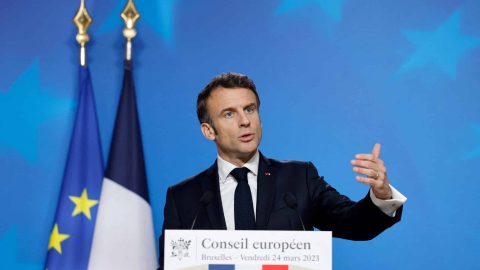
French President Macron Pushes Through Controversial Pension Reform
France’s controversial pension reform is about to be signed off. In the past week, protests against the reform have become more massive.
Game Changer
The current crisis of confidence continues to dominate market activity and has significantly increased uncertainty about the future development of economic indicators. Read more in the current market commentary by Chief Economist Gerhard Winzer.

The Credit Suisse takeover and its possible consequences
The effects of the takeover of the faltering major Swiss bank Credit Suisse by its competitor UBS are spreading far and wide. The risk of a recession has increased. Will the interest rate hikes soon be coming to an end?
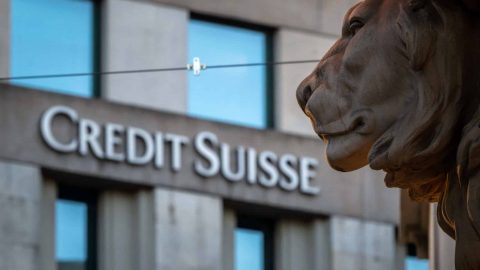
Credit Suisse: Liquidity support after share price turbulence
The Swiss bank Credit Suisse came under pressure on Wednesday after uncertainty spread among investors. The experts from our Investment Division provide an overview.

Silicon Valley Bank – Impact on the Stock Markets
The turbulences surrounding the US Silicon Valley Bank (SVB) are currently keeping the markets busy. After the bank was closed last Friday, a comprehensive package of measures followed over the weekend to avoid possible consequences. In this blog post, the experts of our Investment Division explain what exactly happened and how they assess the situation.
The Good, the Bad and the Hawk
Last week brought good, bad and inflation-fighting news, all from the US. At the start of the new trading week, the focus is on the turbulence surrounding Silicon Valley Bank.
EU and US Looking to Latin America as new Strategic Business Partner
The EU and the USA want to focus more on Latin America as an important economic partner. Most recently, the chances of concluding the EU’s long-planned trade agreement with the Latin American Mercosur free trade zone have also increased.
Conditionally positive economic news
Last week, positive economic data brought back some confidence. The global purchasing managers’ index, one of the most important survey-based economic reports, rose for the third time in a row. On the other hand, the latest inflation reports dampen hopes of a rapid decline in inflation without additional key rate hikes.
ChatGPT – what’s behind the revolutionary technology?
ChatGPT has made headlines in recent months and is seeing rapid user growth. What is behind this tech innovation and how are the major technology companies reacting to this new trend?
Risk inflation persistence
Inflation, which remains too high, continues to be the dominant macroeconomic issue. Hopes that inflation will fall as quickly as it has risen have been dampened, as Chief Economist Gerhard Winzer explains in his market commentary.

One Year Into the Ukraine War: Energy Price Shock and Inflation Still Noticeable, but Recovery on the Horizon
One year after the start of the Russian war of aggression on Ukraine, the economic impact is felt around the globe. Naturally, the economic damage in Ukraine itself is devastating.
Calibration
Central banks and markets are in a calibration phase. The question is how many key rate hikes are needed to be able to confidently expect inflation to fall in the direction of 2%. Particular attention is therefore once again being paid to the US inflation data, which will be published today, Tuesday.
Metaverse – just a dream or long-term investment opportunity?
Besides artificial intelligence, the Metaverse continues to be one of the big future topics in the tech industry. Our expert Harald Egger gives an insight into what the metaverse actually is and what possible areas of application there are.
Microfinance defies international capital markets in 2022
The microfinance market also faced a variety of challenges in 2022. Despite the difficult environment, however, the global market continued to grow dynamically. The ERSTE RESPONSIBLE MICROFINANCE also developed positively in the previous year compared with the global equity and bond markets.
Positive January on the markets
On the stock markets, the first month of the year was positive. The recent softer tones of the central banks give rise to hopes that interest rate hikes are slowly coming to an end. Read more about the current market assessment in our Investment Update.
Party Crashers
Improved growth prospects for China and Europe and hopes of a sustained decline in inflation have supported the markets since the beginning of the year. However, sharp central bank rhetoric and weak growth indicators in the USA could prove to be spoilers.
Tug of war
At present, indicators on inflation and economic activity are competing to determine which of the two categories is more important for the financial market. Read more in the current market commentary by Chief Economist Gerhard Winzer.

After a Difficult Year, the Tech Industry Returns to the CES Industry Trade Show
After a three-year pandemic break, the technology industry returned to the renowned electronics trade show CES in Las Vegas. The dominant topics were artificial intelligence and virtual reality. However, extensive staff reduction programs at major tech companies also made headlines recently.
Upbeat markets at the beginning of the year
Despite uncertainties, the stock and bond markets got off to a friendly start in the new year. In the USA, economic data recently surprised on the upside. Is the situation better than the mood?
Ten topics for 2023
The previous year was marked by unexpectedly high inflation and rapid key interest rate hikes – but what will the new year bring?
In his article, Chief Economist Gerhard Winzer presents ten topics that could be particularly relevant for the financial markets in 2023.
Market commentary: What will the new year 2023 bring?
In the past year, numerous trouble spots preoccupied the markets. In his market commentary, Gerald Stadlbauer, Head of Discretionary Portfolio Management, gives an outlook on what 2023 might bring.
Stock Exchanges Carefully Optimistic for 2023 After Year of Losses
The turn of the year marked the end of a difficult and lossy year on the stock markets. After two years of Corona pandemic, 2022 was dominated by Russia’s invasion of Ukraine, with many stock exchanges suffering double-digit losses.

Ukraine war: Exclusive interview with ORF correspondent Christian Wehrschütz
Hardly any journalist like Christian Wehrschütz has been dealing so intensively with the background of the Ukraine war for years. In an exclusive interview, the ORF correspondent gave us insights into daily life in the midst of a war. He does not currently see a solution to the conflict in the near future.
Energy of the Future
There is no perfect solution to solve our energy problems in the long term, explains Walter Hatak, Head of Responsible Investments. But instead of burying our heads in the sand, we should be able to choose the best possible alternative, take the future into account in our planning, and learn from past mistakes.
Inflation Reduction Act: what’s next?
The Inflation Reduction Act is designed to get the US back on track in terms of climate protection. What will the law achieve and who could benefit from it? Senior Research Analyst Stefanie Schock addresses these questions in her article.
ERSTE GREEN INVEST – with a tailwind towards energy transition
With the energy transition and the necessary ecologisation of the economy, “green technologies” are likely to remain one of the megatrends of the coming years. The ERSTE GREEN INVEST impact fund invests in precisely those companies whose business models could benefit from this megatrend.
Hydrogen – a colour theory
Hydrogen has great potential as a carbon-free fuel, electricity storage or energy carrier and could play an important role in the energy transition. But not all hydrogen is the same, as Senior ESG Researcher Alexander Osojnik explains. There are certain differences depending on how it is produced, which makes the topic of hydrogen almost a color theory.
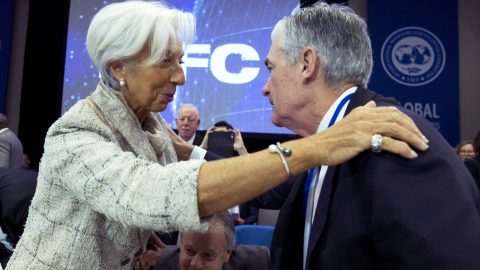
Thrilling decisions before Christmas
This week, the financial markets are once again in for an exciting ride: The European Central Bank and the US Federal Reserve will decide to what extent interest rates will be raised again.
Successful launch of private equity fund of funds in difficult market environment
In June, Erste Asset Management announced the first closing of its private equity fund of funds, “Erste Diversified Private Equity I” at EUR 80mn. In an interview, Thomas Bobek, Head of Private Equity Management, is very satisfied with the successful start of the fund.
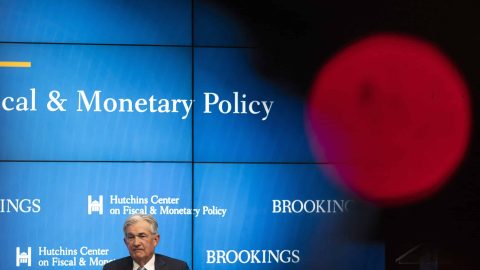
High uncertainty reduces potential for asset price increases
The environment for the financial markets remains highly uncertain. The further development of inflation and economic growth is not sufficiently foreseeable. This points to continued high fluctuations in asset prices.




